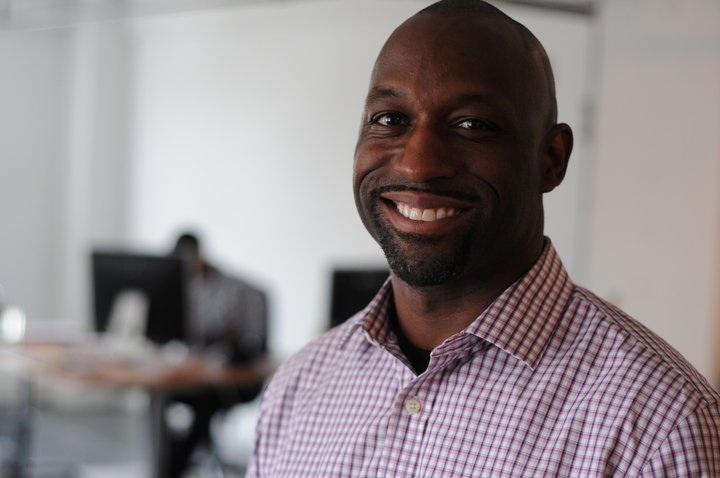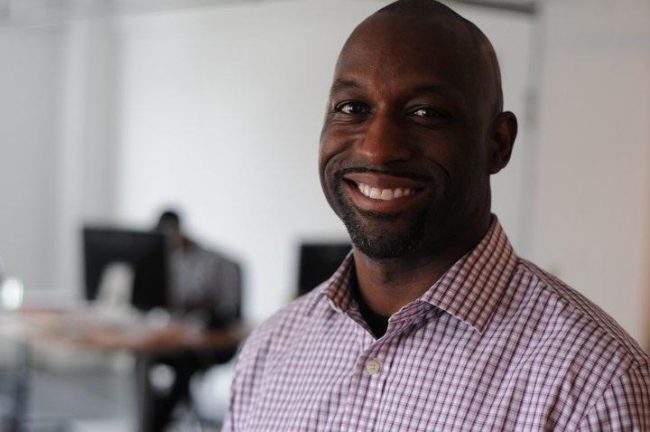
(Courtesy of Shawn Williams)
Black bloggers from early 2007 to the beginning of 2009 helped bring awareness to racial injustices across the country and put a level of pressure on the mainstream American media and political process that hadn’t been seen since the end of the traditional Civil Rights Movement.
In Blogging While Black, author Shawn Williams details the role black bloggers played in impacting the coverage of injustices in Paris, Texas and Jena, LA, while also describing his ascent to credentialed blogger at the Democratic National Convention in Denver to see President Barack Obama accept his bid to be President of the United States.
Today, Williams has seen his instrumental DallasSouthBlog.com, which is rated one of the Top 5 Blogs in Dallas by Outside.in, evolve into a nonprofit news organization called Dallas South News, where he serves as the editor.
In Blogging While Black, Williams not only tells his story and the story of the “golden era” of black bloggers, but he also offers tips at the end of every chapter to encourage aspiring citizen journalists to use the tools and technology around them to make a difference.
Here is a Q & A with Williams about the new book:
Q: Why was it important for you to write this book?
A: First off, it is important to preserve the history of what black bloggers did in 2007-08. There have been some academics that have looked into it, but there hasn’t been an organized account. It’s mainly about how black bloggers impacted 2007-08.
Q: Your journey as a blogger in the book seemed like a wild ride where a lot of circumstances fell into place. Was there ever a time where you thought, “Man, I don’t know about this?”
A: I didn’t think of blogging in terms of making a sustained movement. It was just something at the time to do and help out. I was president of the NAACP chapter at Texas A&M, so I’ve always had a passion for social justice. This was just an extension of that.
Q: You talk extensively about the advantages of being in the blogosphere from 2007-08. Were there any disadvantages bloggers had compared to other news sources?
A: It was a great time to get into the blogosphere. There were 30 credentialed bloggers for the 2004 Presidential Election; they were cutting edge early adapters. But we were still early. We had an advantage because we were still early adapters. If there was a disadvantage, because it was so early, people didn’t look at blogging as a credible source still. People were saying, “These are just bloggers.”
Q: Why do you think there was such a fall off in the black blogosphere after President Obama’s election?
A: The technology. One of the only places you could go online to hear about these stories were these blogs. Facebook was just starting to come off of college campuses and people my age were just beginning to get on Facebook. Conversations we were having on blogs began to happen on Facebook and Twitter. You didn’t have to go to blogs, you could see these stories on your friend’s Facebook wall.
Q: Can we expect a return?
A: There has to be an evolution. Some of the folks I met back then were recently featured on CNN’s “Black in America” special. People are trying to reinvent advocacy. This might come in the form of app development, making more inroads in mainstream media, or creating alternative forms of media. Everything is going to look different and I think it is important that African-Americans find a place in this social media/technology mash-up.
Q: What was it about the Paris, Texas and Jena 6 story that set the black blogosphere on fire?
A: It was timing. One of the headlines was “14-year-old gets seven years in jail for pushing down a hall monitor.” When you see that or hear that it just sounds wrong. Even when people dug deeper, there was still something very wrong. This was not a new feeling for African-Americans, but the blogosphere was a new outlet for African-Americans to share their voice. Those cases were like cases that happened before, but there just wasn’t a place where people from around the world could get together and seek justice.
Q: How were you able to juggle responsibilities as a blogger, employee, and a father and husband?
A: Things moved a little bit slower back then. You weren’t expected to post something everyday and you didn’t have to check your Facebook or Twitter daily. It’s more difficult now because the demand is greater and there is more to it.
Q: You were quickly labeled nationally as an expert in the field of blogging. Did you feel like you carried any extra responsibility after that?
A: No, because there were so many other people doing it. We are responsible for making our community better, so I didn’t feel any extra responsibility. But I did want to make sure I had the facts straight and I was representing my church, family, and blogosphere well.
Q: What’s going on today that citizen journalists should know about?
A: One of the great things about all of this is there aren’t as many stories missed as there used to be. What is missing still is the voices you hear from. There still isn’t a great diversity in the voices you hear from. You tend to hear from African-Americans regarding stories about African-Americans. People of color have opinions of American Airlines filing for bankruptcy, for example, and you don’t hear their voices on these issues. This goes into the political sphere as well. You hear from Latinos about immigration. I want to hear from African-Americans about the poll tax holiday and about the debt. There needs to be more inclusion of voices in these kinds of stories.
Q: If people were to take away one thing from your book, what would it be?
A: We all can make a difference. Everyone that reads this book can impact their community not only a local level, but even on a national level. All it takes is a desire for an individual to do so. And one of the ways is by taking advantage of the technology that is available.
Q: What did you not include in your book that you would like to see more research on?
A: Something to be explored even more moving forward is how the Democratic party did not capitalize on the energy that was built up for the inauguration of Barack Obama. Things changed so fast and platforms have changed so fast. Sending an email to a younger voter is not necessarily the best way to get them engaged, so what’s next?









